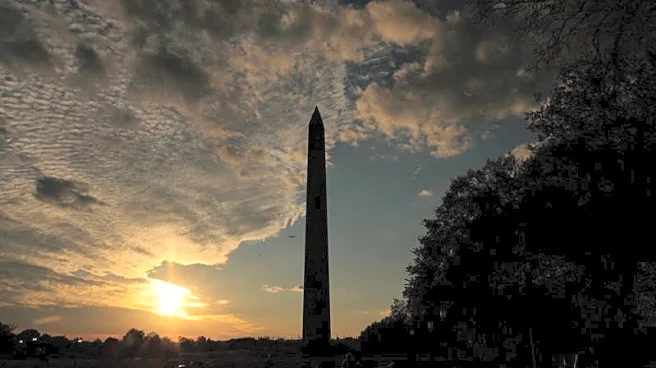By Nolan D. McCaskill, Andy Sullivan and David Morgan
WASHINGTON (Reuters) -Members of the House of Representatives returned to Washington on Tuesday, braving the nation's tangled airports for a vote that could bring the longest U.S. government shutdown in history to a close.
With thousands of flights canceled in recent days due to the shutdown, some lawmakers opted for other modes of transportation to the capital. Republican Representative Derrick Van Orden said he was making the 16-hour drive from
his Wisconsin district because air travel was too unreliable.
"It's going to be a little chilly, but I will do my duty. I'm getting back to D.C., we're going to get this country back on track," he said in a video posted to social media.
The Republican-controlled House is due to vote Wednesday afternoon on a compromise that would restore funding to government agencies and end a shutdown that started on October 1. The Republican-controlled Senate approved the deal on Monday night and House Speaker Mike Johnson has said he expects it to pass his chamber as well.
President Donald Trump has called the deal "very good" and is expected to sign it into law.
Within days, the U.S. government could be fully functional again, bringing relief to federal workers who have missed paychecks and low-income families who depend on food subsidies. However, it could take several days for the nation's air travel system to return to normal.
The deal has divided Democrats, who had sought to extend healthcare subsidies for 24 million Americans past the end of the year, when they are due to expire. Senate Republicans have agreed to hold a separate vote on those subsidies in December, but there is no guarantee it will pass the chamber, and Johnson has yet to say whether the House will even hold a vote.
Johnson kept the House out of session for the entirety of the shutdown in a bid to pressure Senate Democrats to reopen the government.
The Democratic Party's liberal base has reacted with fury, arguing that Senate Democrats had capitulated in a fight they were winning.
A late October Reuters/Ipsos poll found that 50% of Americans blamed Republicans for the shutdown, while 43% blamed Democrats.
The deal would extend funding through January 30, leaving the federal government for now on a path to keep adding about $1.8 trillion a year to its $38 trillion in debt.
Trump has unilaterally canceled billions of dollars in spending and trimmed federal payrolls by hundreds of thousands of workers, intruding on Congress' constitutional authority over fiscal matters.
The deal does not appear to include any specific guardrails to prevent Trump from enacting further spending cuts.
However, it would stall his campaign to downsize the federal workforce, prohibiting him from firing employees until January 30.
The deal would also ensure that the SNAP food aid program for the poor, which has been disrupted by the shutdown, would continue uninterrupted until September 30, 2026, the end of the fiscal year.
(Reporting by Nolan D. McCaskill and Andy Sullivan; Editing by Alistair Bell)
















